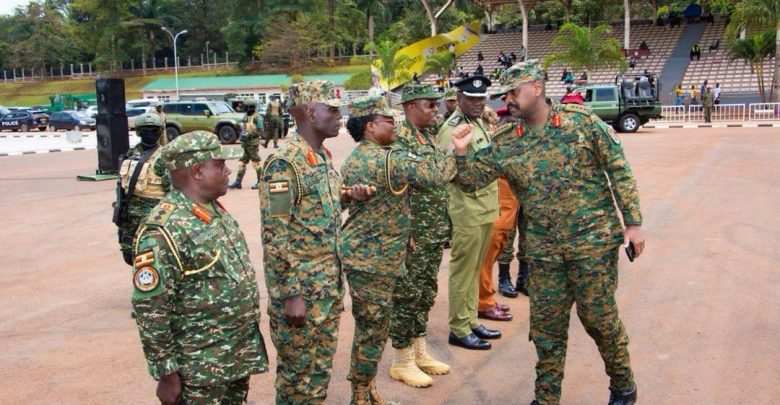
Uganda’s Chief of Defence Forces, Gen. Muhoozi Kainerugaba, on Tuesday oversaw final preparations for the country’s 63rd Independence Day celebrations, signaling a continued push to modernize and standardize national parades under his leadership. During a high-level inspection at Kololo Ceremonial Grounds—now designated the permanent venue for Independence Day and Heroes Day commemorations—Gen. Kainerugaba congratulated participating Uganda People’s Defence Forces (UPDF) units, saying the refinements in drill and choreography demonstrated “significant improvement since the introduction of the new parade format.”
The CDF revealed that his proposal to centralize national ceremonies at Kololo had been approved by President Yoweri Museveni, citing efficiency and enhanced coordination.
“This decision reflects our intent to streamline these symbolic events. Other commemorations, such as Tarehe Sita, will still rotate across the country,” Kainerugaba noted.
Since taking office last year, the four-star general has introduced a suite of parade reforms, including restructured drills, fresh military songs, and a controversial shift in ceremonial dress—requiring female soldiers to wear skirts instead of trousers during official parades.
He reiterated that these efforts aim to elevate the army’s public image, boost morale, and inspire patriotism.
“Parades are not just symbolic. They show discipline, unity, and a nation’s strength,” Kainerugaba said, calling on military bands and drill commanders to maintain top standards.
His remarks echoed those of President Museveni during last year’s independence celebrations in Busia, where the commander-in-chief praised the shortened, more focused parade format as “more organised and impactful.”
The 63rd Independence Day celebrations—slated for October 9—will run under the theme: ‘63 Years of Independence: A Reason to Double Our Efforts in Sustaining a United and Progressive Nation’.
The event comes at a time when Uganda is positioning its security forces as central to both national identity and regional stability, amid expanding peacekeeping roles and public sector reforms.
By ChimpReports












